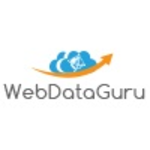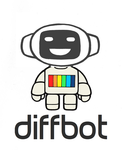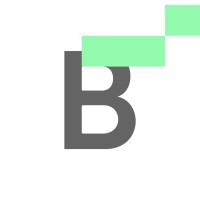Description

Matillion

WebDataGuru
Comprehensive Overview: Matillion vs WebDataGuru
Matillion Overview
a) Primary Functions and Target Markets:
- Primary Functions: Matillion is a cloud-native data integration platform designed to optimize data workflows for organizations leveraging cloud data infrastructures. It specializes in Extract, Transform, Load (ETL) processes, focusing on transforming raw data into meaningful insights while ensuring compatibility with cloud data warehouses like Amazon Redshift, Google BigQuery, Snowflake, and Azure Synapse.
- Target Markets: Matillion primarily targets mid-sized to large enterprises that have adopted cloud-based data warehousing strategies. It is widely used across industries such as finance, retail, healthcare, and technology, where handling large data volumes and deriving insights swiftly is critical.
b) Market Share and User Base:
- Matillion has positioned itself strongly in the data integration space, particularly within the cloud ETL segment. Although exact market share figures can be elusive due to the private nature of such data, Matillion is recognized as a leading contender in the ETL market, with numerous high-profile customers and strategic partnerships with major cloud data platform providers.
- The user base consists of data engineers, data analysts, and business intelligence professionals who require robust and scalable data transformation solutions to drive business insights.
c) Key Differentiating Factors:
- Cloud-Native Design: Unlike some traditional ETL tools that were adapted for the cloud, Matillion was built specifically for cloud environments, optimizing resource usage and performance in cloud settings.
- Integration Capabilities: Matillion offers deep integration with leading cloud data platforms, allowing seamless data movement and transformation within these environments.
- User-Friendly Interface: The platform is renowned for its intuitive, low-code/no-code interface, enabling users with varying technical expertise to design complex ETL workflows with ease.
- Scalability and Performance: Matillion's architecture is designed for high scalability and rapid data processing, ensuring performance remains consistent as data volumes grow.
WebDataGuru Overview
a) Primary Functions and Target Markets:
- Primary Functions: WebDataGuru offers web data scraping, extraction, and analysis services tailored to businesses looking to leverage large datasets from the internet. The platform provides tools for automated data collection, price comparison, market research, and competitive analysis.
- Target Markets: WebDataGuru targets a broad spectrum of businesses from ecommerce, retail, travel, and real estate sectors to market research firms. Any business that benefits from competitive intelligence and data-driven decision-making can be a potential customer.
b) Market Share and User Base:
- In the web data scraping and extraction space, WebDataGuru competes with various other specialized service providers and open-source tools. While concrete market share figures are difficult to ascertain, WebDataGuru is a reputable name in the niche of automated web data services.
- Their user base primarily consists of business analysts, marketing professionals, and strategy departments within SMEs and large enterprises seeking to gather actionable web data regularly.
c) Key Differentiating Factors:
- Customization and Flexibility: WebDataGuru provides highly customizable data extraction services tailored to the specific needs of the client, allowing businesses to focus on the most relevant data points.
- Automated and Scalable Solutions: Its services are built for automation, enabling continuous data gathering at scale with minimal manual intervention.
- Comprehensive Data Management: Apart from data extraction, WebDataGuru offers solutions for data management, ensuring that the data is clean, structured, and ready for analysis.
- Compliance and Ethics: With growing concerns around data privacy and compliance, WebDataGuru emphasizes ethical data scraping practices and ensures compliance with applicable regulations, distinguishing it from some less scrupulous competitors.
Comparison Summary
- Functionality: Matillion focuses on data integration and transformation specifically within cloud environments, while WebDataGuru specializes in web data extraction and analysis.
- Target Market: Both serve businesses leveraging data for strategic decisions but focus on different aspects of data processing – Matillion on internal data workflows and WebDataGuru on external web data collection.
- Technology & Approach: Matillion offers a platform-based, user-driven ETL process, whereas WebDataGuru provides more service-oriented, customized data extraction solutions.
- User Interface & Experience: Matillion offers a self-service approach with an intuitive platform, whereas WebDataGuru emphasizes extracting custom, relevant data with potentially a more service-driven support model.
Both companies address distinct aspects of data handling and processing, catering to the evolving needs of businesses in a data-driven world.
Contact Info

Year founded :
2011
+44 161 938 8038
Not Available
United Kingdom
http://www.linkedin.com/company/matillion-limited

Year founded :
2015
+1 917-727-7959
Not Available
United States
http://www.linkedin.com/company/webdataguru
Feature Similarity Breakdown: Matillion, WebDataGuru
As of my last update in October 2023, Matillion and WebDataGuru serve different core purposes, with Matillion primarily focused on ETL (Extract, Transform, Load) for data integration, and WebDataGuru focusing on web data extraction and scraping. However, there's a level of overlap in their capabilities, especially when you consider data handling and manipulation features. Let's break it down:
a) Core Features in Common
Both Matillion and WebDataGuru share a common goal of managing and transforming data, albeit in different contexts:
-
Data Integration and Transformation:
- Both platforms can extract data from various sources and support data transformation. While Matillion focuses on ETL for cloud data warehousing (like Amazon Redshift, Snowflake, etc.), WebDataGuru enables users to extract and transform web data.
-
Scalability:
- Both have scalable architectures to handle large volumes of data, suitable for enterprise-level operations.
-
Automation:
- They offer automation capabilities, allowing users to schedule and automate data tasks.
-
Cloud Compatibility:
- Both platforms are cloud-ready and can be deployed in cloud environments.
b) User Interface Comparison
-
Matillion:
- Matillion is known for its intuitive and user-friendly interface specifically designed for ETL tasks. It provides a visual pipeline interface, which allows users to drag and drop components to create their data workflows easily. Matillion’s UI is tailored for ETL developers and data engineers.
-
WebDataGuru:
- WebDataGuru offers a more technical interface aimed at users who need to configure web scraping tasks. The interface may be less visual compared to Matillion, focusing more on settings and configurations for scraping and data extraction.
Overall, Matillion tends to have a more polished and visual UI catering to ETL processes, while WebDataGuru’s interface is functional for configuring data extraction, potentially requiring more technical understanding.
c) Unique Features
Matillion:
-
Cloud Data Warehouse Integration:
- Direct and optimized integration with cloud data warehouses like Snowflake, Amazon Redshift, and Google BigQuery.
-
Advanced Transformations and Orchestration:
- Provides robust transformations and orchestration capabilities tailored for large-scale ETL processes in the cloud.
-
Native Platform Features:
- Native connectors and features that are fine-tuned for specific cloud environments make it very effective for cloud-based ETL operations.
WebDataGuru:
-
Web Scraping:
- Specifically designed for extracting data from websites, offering features that cater to web data extraction challenges such as handling various HTML structures, dealing with dynamic content, etc.
-
Data Cleaning and Structuring:
- Built-in capabilities to clean and structure raw web data, which is critical in making it usable for analysis or integration into other systems.
-
Customization:
- Potentially more customizable with respect to setting up custom scraping configurations tailored to user needs, as it focuses heavily on web data.
In summary, while both Matillion and WebDataGuru handle data, they cater to different aspects of the data lifecycle. Matillion excels in cloud-based ETL for data warehousing, while WebDataGuru is specialized in extracting and preparing web data for further use.
Features

Not Available

Not Available
Best Fit Use Cases: Matillion, WebDataGuru
Matillion
Matillion is a cloud-based data integration platform predominantly used for ETL (Extract, Transform, Load) processes. It is designed to be user-friendly and is highly integrated with cloud data platforms like Amazon Redshift, Google BigQuery, and Snowflake.
a) Best Fit Use Cases for Matillion
-
Cloud-Focused Businesses: Companies that have adopted or are planning to shift their data infrastructure to the cloud would benefit from Matillion’s cloud-native architecture.
-
Data-Driven Enterprises: Businesses that rely heavily on data analytics and reporting for decision-making processes, such as financial firms, healthcare providers, and retail companies, can use Matillion to streamline their data pipelines.
-
Project-Centric Organizations: Organizations engaged in specific projects that require extensive data transformation and integration can leverage Matillion’s capabilities to combine data from multiple sources quickly.
-
Scalable Operations: Enterprises that are expecting or are currently experiencing rapid growth, and hence require a scalable ETL solution, will find Matillion's scalability advantageous.
-
Short Time-to-Value Projects: Businesses looking for quick implementation and ROI for their data projects can benefit from Matillion’s pre-built connectors and simplified setup.
WebDataGuru
WebDataGuru is a service-oriented tool specialized in web data scraping, processing, and aggregation. It enables businesses to extract data from various web sources for competitive analysis, market research, monitoring, and more.
b) Preferred Use Cases for WebDataGuru
-
Market Research Firms: Companies that need large volumes of up-to-date data from web sources for competitive analysis and reporting.
-
E-commerce Platforms: Businesses that require price comparison, product listing data, or consumer sentiment analysis can utilize WebDataGuru’s scraping capabilities.
-
Real Estate Agencies: These businesses can leverage WebDataGuru for collecting market data, property listings, and pricing information to stay competitive.
-
Social Media Analysis: Organizations looking to gather sentiment data and trends from social media platforms for brand management or product improvement.
-
Ad Tech Companies: Firms that need advertising data and insights from multiple web sources to improve targeting and campaign effectiveness.
d) Catering to Different Industry Verticals and Company Sizes
-
Industry Verticals:
- Matillion: Typically caters to industries like finance, healthcare, retail, and telecommunications, where data integration and heavy analytics are essential.
- WebDataGuru: Serves e-commerce, travel, real estate, digital marketing, and any other sector that requires extensive web-based data collection and analysis.
-
Company Sizes:
- Matillion: Ideal for medium to large enterprises due to its comprehensive integration capabilities and scalability. It’s also suitable for fast-growing startups that plan to scale their data operations rapidly.
- WebDataGuru: More versatile in terms of company size, catering to small businesses for niche data needs as well as large enterprises requiring massive data aggregation from numerous web sources.
Both platforms provide unique capabilities tailored to different types of data challenges. Matillion is focused more on structured, cloud-based data integration, while WebDataGuru excels in extracting and harnessing unstructured data from the web.
Pricing

Pricing Not Available

Pricing Not Available
Metrics History
Metrics History
Comparing teamSize across companies
Conclusion & Final Verdict: Matillion vs WebDataGuru
To determine which product offers the best overall value between Matillion and WebDataGuru, we need to evaluate them based on several key factors such as features, scalability, integration capabilities, pricing, ease of use, and support. Here's a detailed analysis:
Conclusion and Final Verdict
a) Best Overall Value
Considering all factors, Matillion generally offers the best overall value for users, especially those seeking a robust data transformation and ETL (Extract, Transform, Load) solution. Its extensive integration capabilities with major cloud data platforms, ease of use, and scalability for growing business needs make it a strong choice for many organizations.
b) Pros and Cons
Matillion:
-
Pros:
- Cloud Integration: Seamlessly integrates with major cloud data warehouses like AWS Redshift, Google BigQuery, Azure Synapse, and Snowflake, making it a versatile choice for cloud-first businesses.
- User-Friendly Interface: Offers an intuitive, drag-and-drop interface with low-code/no-code functionality, enhancing user accessibility.
- Scalability: Efficiently handles data at scale, which is ideal for growing businesses or those with large datasets.
- Comprehensive Support: Provides robust customer support and a wealth of online resources and community forums.
-
Cons:
- Pricing: Can be expensive, especially for smaller businesses, as costs can scale with usage and the number of connectors.
- Complexity for Small Scale: Might be overkill for small-scale data needs that do not require such expansive capabilities.
WebDataGuru:
-
Pros:
- Web Scraping Expertise: Specializes in customizable web scraping tools, useful for businesses focused on market data, price monitoring, and competitive analysis.
- Cost-Effective for Specific Use-Cases: May provide a more affordable solution for organizations specifically in need of web data extraction.
-
Cons:
- Limited Data Operation Capabilities: Primarily focused on web data scraping, lacking the extensive ETL features that a tool like Matillion provides for comprehensive data processing.
- Integration Limitations: May not offer the same level of seamless integration with various cloud platforms and data ecosystems compared to Matillion.
c) Recommendations
For users trying to decide between Matillion and WebDataGuru, the choice should align with their core data needs:
-
Choose Matillion if:
- You require a full-fledged ETL solution with powerful data transformation capabilities.
- Your business heavily relies on cloud data warehouses and operates at a larger scale.
- You're seeking a platform with a wide range of integrations and strong support infrastructure.
-
Choose WebDataGuru if:
- Your primary need is efficient web data scraping and market intelligence tools.
- You are looking for a more specialized solution focused on data extraction from web sources.
- You have a smaller budget and specific use cases around web data acquisition rather than broad data transformation.
Ultimately, the decision should hinge on the specific business requirements and priorities, whether they align more with broad data integration or focus narrowly on web data extraction.
Add to compare
Add similar companies



